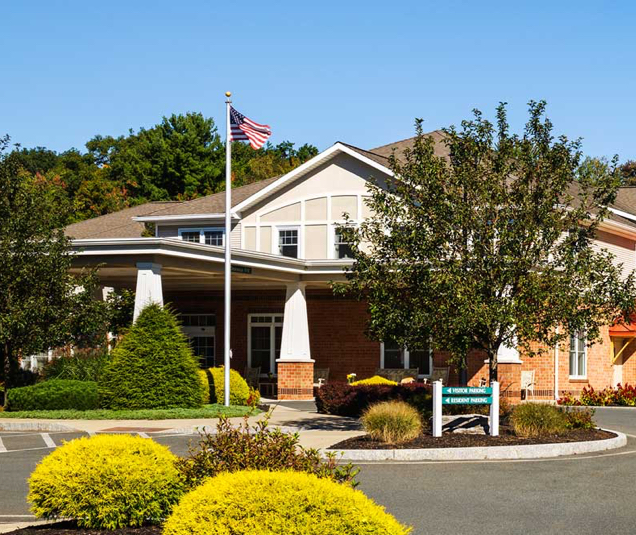As our family members grow older, we often encounter the difficult task of making sure that they have the necessary care and support, all while preserving their autonomy and quality of life. Assisted living communities are crafted to meet this need, providing a nurturing environment for older individuals who need help with routine activities.
It’s critical to recognize when it might be the appropriate time to consider assisted living to make well-informed choices about their future care.
The indicators that it’s time to explore assisted living options can sometimes be clear, like noticeable health deterioration or challenges in managing daily tasks. At other times, these signs might be subtler, such as increased social withdrawal, a decrease in nutritional intake, or signs of caregiver fatigue.
Peregrine Senior Living offers the support your loved ones need, with trained staff available 24/7, nutritional support, and specialized activities and events.
Deterioration in Health
A significant and worrying indication that it might be time to consider assisted living is a noticeable deterioration in physical or mental health. As we age, it’s common to face a range of health problems. If you or your family member is dealing with persistent health conditions, difficulties with mobility, or diminishing cognitive abilities, looking into assisted living communities could be a prudent step.
In such environments, skilled personnel are available to manage medication routines, aid with daily personal care and hygiene, and keep a close watch on health issues, contributing to enhanced general health and wellness.
Challenges in Performing Activities of Daily Living (ADLs)
Activities of daily living, or ADLs, include crucial tasks like bathing, dressing, personal grooming, preparing meals, and maintaining cleanliness. When these tasks, which were once part of a routine, become difficult or risky to carry out alone, it indicates a need to think about assisted living.
Communities specializing in assisted living are designed to offer the support needed for residents to safely manage their hygiene and nutritional needs. This not only helps preserve a degree of independence but also plays a role in enhancing their overall quality of life.
Social Isolation & Loneliness
Social withdrawal and feelings of loneliness can significantly impact the mental and emotional wellness of older adults. Should you or a family member find yourselves in a situation with diminished social engagement, possibly due to restricted mobility, the passing of a spouse or friends, or various other reasons, an assisted living environment could offer a lively and engaging community.
With a variety of social activities, events, and communal dining opportunities, assisted living can help alleviate feelings of solitude and loneliness, thereby enhancing life quality.
Prioritizing Safety
For older adults and their families, safety is paramount. Regular occurrences of falls, mishaps, or instances of wandering signal that residing independently may pose a risk. Assisted living communities are intentionally constructed to prioritize safety, incorporating amenities like handrails, anti-slip floors, emergency call systems, and a professional team ready to respond swiftly during emergencies. These preventive strategies provide reassurance to both the residents and their loved ones.
Caregiver Burnout
Numerous older adults depend on their relatives for support with daily needs. Despite the relentless commitment displayed by these family caregivers, the continuous requirements of such care can result in caregiver burnout, compromising their health and welfare.
If you’re a caregiver feeling overburdened by the duties of caregiving, exploring assisted living options could be a beneficial move. Assisted living communities offer specialized care, affording family members relief and the chance to enjoy meaningful moments with their loved ones, free from the ongoing stress of caregiving tasks.
Nutritional Decline
Inadequate nutrition can lead to severe health issues in older adults. If you or a family member finds it challenging to prepare meals, shop for groceries, or sustain a healthy diet, it might be time for assisted living.
Assisted living communities employ skilled dietitians and chefs dedicated to fulfilling nutritional requirements and providing an array of tasty, wholesome meal choices. Making sure of proper nutrition is important for the health and energy levels of older adults, and assisted living offers a reliable way to make sure residents consistently receive the nourishment they require.
Choosing Assisted Living with Thoughtfulness & Care
Identifying the need for assisted living is a crucial step toward safeguarding the welfare and safety of older adults. The journey towards deciding on assisted living can be emotionally taxing, yet it’s essential to keep the focus on the older adult’s health, well-being, and quality of life.
Peregrine Senior Living provides a nurturing setting where older adults can flourish, access necessary care, and lead a vibrant, engaging lifestyle.
Schedule a visit with us today to discover how Peregrine Senior Living can support you and your family.













Dining at our community is about more than what’s on the plate—it’s about connection, community, and the joy of gathering together.
Our talented culinary team crafts meals that are both delicious and nutritious, offering flavors that comfort and inspire.
From themed dinners to chef demonstrations, each meal becomes an opportunity to savor the moment and celebrate life’s simple pleasures. 🍴
peregrinedelmarplace.com/ ... See MoreSee Less
0 CommentsComment on Facebook
Today we celebrate the caregivers—those whose quiet strength and unwavering compassion bring comfort to so many.
We see the difference caregivers make every day: holding a hand, sharing a smile, or offering reassurance when it’s needed most. 💕
Your dedication reminds us that true care goes beyond tasks—it’s an act of love, patience, and humanity.
Thank you for all you do to make the world a more compassionate place.
peregrinedelmarplace.com/ ... See MoreSee Less
1 CommentsComment on Facebook
Thank you to Jude and her team at Mary Kay for the valentine gifts. ... See MoreSee Less
1 CommentsComment on Facebook
Thank you to the Tri County Banjo Band for playing for us. Everyone loved it!🪕 ... See MoreSee Less
0 CommentsComment on Facebook
Celebrating Valentine’s Day with Wally! ... See MoreSee Less
0 CommentsComment on Facebook
Happy Valentine’s Day! ❤️
Love takes many forms—between partners, friends, families, and even across generations.
Today we celebrate the love that fills our community: the care shared between residents and team members, the laughter that brightens our halls, and the sense of belonging that reminds us we’re never alone.
May your day be filled with connection, warmth, and heart.
peregrinedelmarplace.com/ ... See MoreSee Less
0 CommentsComment on Facebook
Thank you to St. Thomas for the great goodie bags to celebrate Valentine's Day! ... See MoreSee Less
0 CommentsComment on Facebook